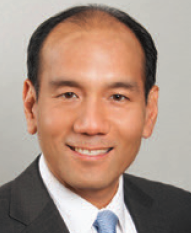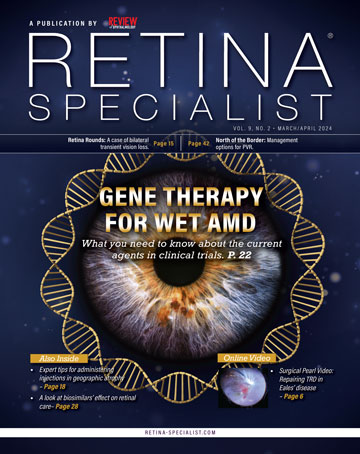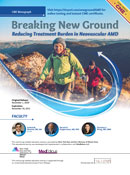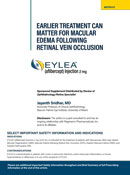On a winter evening as a young attending, I was descending in the parking garage elevator. A much older physician smiled at me, nodded and said with a perceptive smile, “Did you leave some work for tomorrow?”
I don’t remember what was on my mind. I was probably stewing over patients and thinking about my manuscripts and research projects behind schedule. His implications were spot on.
Work, especially work as a retina specialist, can be incredibly fulfilling and rewarding. We are clinicians, surgeons, researchers and innovators focused on restoring and preserving humanity’s most valued sense.
With the pending pegcetacoplan Prescription Drug User Fee Act action date of February 26, we’re likely on the verge of having the first approved therapy for geographic atrophy. Following that anticipated approval, our field will break into a new era. But, our work will not be done. While I believe clinically meaningful, through two years in the pivotal Phase III OAKS and DERBY trials, monthly pegcetacoplan slowed GA lesion growth by just 19 to 22 percent.
We have much work to do toward educating referring doctors and patients about realistic expectations with this new therapy, defining which patients will benefit most from treatment in the short- and long-term, and accelerating development of next-generation therapies that can be used in combination or as monotherapies with greater durability and efficacy.
Even with work such as this, infused with tremendous meaning, we must balance it with play. Burnout is real. Recent data suggest that more than 30 percent of retina specialists may deserve this label.1
One of our challenges is the underappreciated Zeigarnik effect—the ability of incomplete tasks to dominate our attention. In Cal Newport’s Deep Work: Rules for Focused Success in a Distracted World, one solution he presents is use of a shutdown ritual daily to facilitate transition away from work for the benefit of refreshing our mind and maximizing engaging with our family and friends.
Another simple, free, effective way to decrease stress and the risk of burnout is laughter. As Natalie
Dattilo MD, former director of psychology, Brigham and Women’s Hospital summarized recently, “As adults, we don’t laugh nearly as much as we used to. The idea that we would have fun, play, and make time for those things is often seen as a reward or something you have to earn or something you do when the work is done. But the work is never done.”
Work hard? Yes, of course. But make time to intentionally unplug, hug your family, laugh and play along the way. Leave some work for tomorrow. RS
REFERENCE
1. Feng S. Taravati P, Ding L, Menda S. Burnout in ophthalmology residency: A national survey. J Aca Ophthalmol. 2018;10:e98-e107.
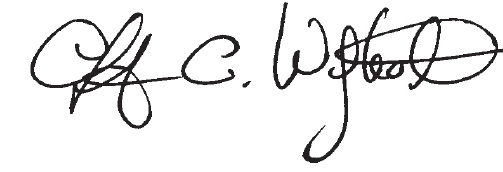 |
